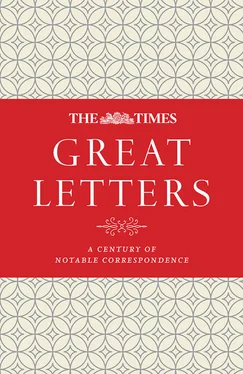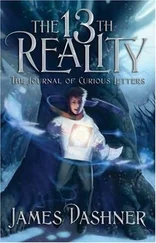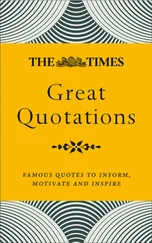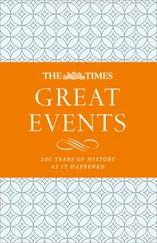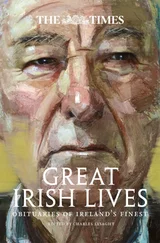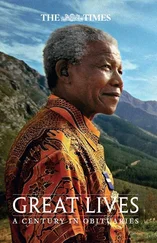Yours truly,
JOHN GALSWORTHY
* * * * * * *
Treating Married Women Fairly
6 April 1914
Sir, I think it may serve a useful purpose to enunciate clearly three inevitable results of compelling professional women to give up their professions on marriage. (1) It prevents admirable women of a certain type of character from marrying at all; (2) it deprives the community of the work and the experience of another type of woman, who does not feel able to sacrifice her private life to her career; (3) it leads other women, of a more perfect balance, who demand the right to be both normal women as well as intelligences, to (a) wilfully and “dishonestly” concealing the fact of their marriage from their employers; or (b) living in union with a man without the legal tie of marriage.
Regarding the last alternative, I may say that it is sure steadily to increase if interference with married women’s work is persisted in. My own experience of three years of marriage, in which I have discovered the innumerable coercions, restrictions, legal injustices, and encroachments on her liberty imposed on a married woman by the community or sections of it, has brought me to the point of being ready to condone in any of my educated women friends a life lived (if in serious and binding union) with a man to whom she is not legally married. Three years ago such a course would have filled me with horror.
Only by treating married women properly, i.e., by leaving them the freedom of choice allowed to all other individuals, can innumerable unexpected evils be avoided.
Yours faithfully,
MARIE C. STOPES
Dr Stopes was at the time seeking to have her marriage annulled. Married Love, the work which made her name, in part by openly advocating that women practise birth control, was published in 1918.
* * * * * * *
NOT A MANLY GAME
6 June 1914
Sir, The sooner it is realized that golf is merely a pleasant recreation and inducement to indolent people to take exercise the better. Golf has none of the essentials of a great game. It destroys rather than builds up character, and tends to selfishness and ill-temper. It calls for none of the essential qualities of a great game, such as pluck, endurance, physical fitness and agility, unselfishness and esprit de corps, or quickness of eye and judgment. Games which develop these qualities are of assistance for the more serious pursuits of life.
Golf is of the greatest value to thousands, and brings health and relief from the cares of business to many, but to contend that a game is great which is readily mastered by every youth who goes into a professional’s shop as assistant (generally a scratch player within a year!) and by the majority of caddies is childish. No one is more grateful to golf for many a pleasant day’s exercise than the writer, or more fully recognizes the difficulties and charm of the game, but there is charm and there are difficulties in (for instance) lawn tennis and croquet. It certainly seems to the writer that no game which does not demand a certain amount of pluck and physical courage from its exponents can be called great, or can be really beneficial to boys or men.
The present tendency is undoubtedly towards the more effeminate and less exacting pastimes, but the day that sees the youth of England given up to lawn tennis and golf in preference to the old manly games (cricket, football, polo, &c.) will be of sad omen for the future of the race.
I am, yours, &c.,
B. J. T. BOSANQUET
Bosanquet was himself a cricketer, for Middlesex and England, and noted as the inventor of the googlie – of which more later (see page).
* * * * * * *
The German people and the war
7 August 1914
Sir, May I add my testimony to that of Lady Phillips published in your issue of to-day? I started from Germany at 3 o’clock p.m. on Saturday last, with my wife and sister-in-law, and during the whole of our trying and anxious journey we experienced nothing but the utmost kindness and courtesy from both people and officials.
Perhaps I may add one thing more. It is too late to believe in the bona fides of the German Government; but in that of the German people I still believe. During my short visit I had conversations with many Germans of various classes. All believed that Russia had provoked the war in order to establish the Slav hegemony over the Germans, and that France was an accomplice in the spirit of revanche. All hated the idea of war — the look in their faces haunts me yet — but accepted it with a high courage because they believed it to be necessary for the safety of their country.
The German people, believe me, are better than their Government. We have to fight them, but let us do so in the spirit of gentlemen, giving them full credit for the admirable and amiable qualities to which those who know them best bear loudest witness.
W. ALISON PHILLIPS
Phillips was formerly a foreign correspondent with The Times. War between Britain and Germany had been declared three days earlier.
* * * * * * *
old soldier
5 September 1914
Sir, I have, before the war was declared, offered my services as an old soldier in many regiments and as one who has been in service in South Africa (victory and disaster), to the authorities, but no acknowledgment has ever been received.
I have got over 100 men to recruit willingly in Fife.
I have had my three servants refused as “unfit” to-day — one for chest measurement, a well set up young man of 22; another very naturally, for varicose veins; a third because at some time he injured his knee and does not work well. The latter is a chauffeur, and long ago offered his services for transport service, and is a good driver. All these men are under 25 years of age. If the medical authority are not allowed to enlist such men for various services how can they render service to their country?
In my own position I consider it scandalous that I cannot fill a position in a cavalry regiment instead of a boy of 17 who has seen no service.
Yours faithfully,
ROSSLYN
The Earl of Rosslyn
P.S. — Of course I want to go to the front after a week’s drill.
Lord Rosslyn, the 5th Earl, was then in his mid-forties.
* * * * * * *
Old Socks Wanted
12 December 1914
Sir, Mittens are wanted badly by the troops and they are scarce. A sock only wears out in the foot part, and if this is cut off (thrown away) and a hole made in the other part for the thumb to go through, an excellent mitten can be made without any expense. I am paying unemployed typists to sew them over, but in three months I have exhausted my circle of friends. May I ask your readers to send me all the old (clean) socks they can collect, in order in this way to provide more work and more comforts without cost and without interfering with the living of any other class?
Yours faithfully,
GEORGE PRAGNELL
* * * * * * *
Colonel Cornwallis-West
12 January 1915
Sir, Lieutenant-Colonel George Cornwallis-West, who has been in continuous command since September of one of the battalions of the Royal Naval Division which were present at Antwerp, has been much annoyed and feels justly indignant at persistent rumours which have been going round to the effect that he has been “shot in England as a spy.”
Colonel West desires us to say that he is alive and well, and he will be much obliged if you will accord him the favour of publishing this letter.
We write as Colonel West’s solicitors. He was with us this morning.
We are, yours faithfully,
ROOPER AND WHATELY
Rooper and Whately, Solicitors
Cornwallis-West was primarily known to readers of The Times for his marriages. His first wife was the former Lady Randolph Churchill, thus making him stepfather to Winston Churchill — albeit the two men were the same age. He had recently wed the actress
Читать дальше
